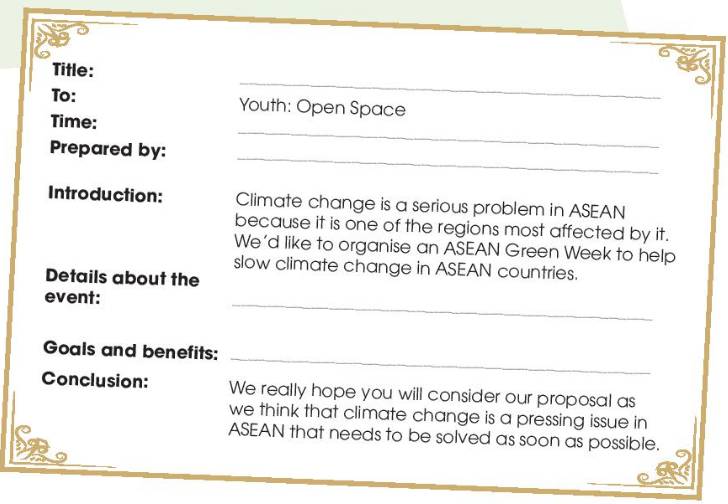Read the following passage and mark the letter A, B, C, or D to indicate the correct answer to each of the questions.When Malaysia takes the ASEAN chair next year, it will face a huge challenge. Too few of us know enough about this grouping we call the Association of Southeast Asian Nations. We do not know what it means to be a part of ASEAN and why it is important to us. At the same time, pressure is mounting to reinvent ASEAN to make it more people-centric and less government-centric. The...
Đọc tiếp
Read the following passage and mark the letter A, B, C, or D to indicate the correct answer to each of the questions.
When Malaysia takes the ASEAN chair next year, it will face a huge challenge. Too few of us know enough about this grouping we call the Association of Southeast Asian Nations. We do not know what it means to be a part of ASEAN and why it is important to us. At the same time, pressure is mounting to reinvent ASEAN to make it more people-centric and less government-centric. The Heat speaks to Global Movement of Moderates CEO Saifuddin Abdullah on why ASEAN should mean more to us than just acronyms.
ASEAN people do not feel like they are a part of the community of Southeast Asian nations. This statement, backed up by survey findings, is pretty bizarre, and extremely hurtful too, considering that ASEAN is 47 years old today. "Interview 10 persons on the street and you would perhaps get only one of them who knows about ASEAN,” says Datuk Saifuddin Abdullah. This CEO of Global Movement of Moderates (GMM) is not running down ASEAN; he's confronting the truth as it impacts the project he has been entrusted with. Here's more, in 2012, the ASEAN Secretariat conducted a survey that showed only 34% of Malaysians had heard of the ASEAN community. This compares with 96% of Laotians. Malaysia chairs ASEAN next year, and GMM is a member of the national steering committee organising the ASEAN People's Forum (APF), a platform designed to bridge the gap between governments and civil society. Never heard of it? You're forgiven.
The APF actually started off life in the 1990s, except it was called the ASEAN People's Assembly (APA). It was held back to back with the ASEAN Summit, which is held twice a year. The APA is the forum where 10 leaders of government engage with 10 leaders of civil society in a half-hour meeting. "It was going well until one year when the chairman decided not to hold the APA, so it was discontinued until 2005 when Malaysia took the chairmanship of ASEAN again and founded the ASEAN People's Forum (APF)," Saifuddin explains. In a perfect world, forums such as the APF or its predecessor APA would have worked perfectly to bridge the gap between government and civil society.
However, as Saifuddin points out, Civil Society Organisations (CSOs) often do not see eye to eye with their governments. For instance this year, Myanmar is chair of ASEAN and in the APF, three member nations - including Malaysia - decided not to recognise the CSO leaders chosen as representatives so the APF did not take place. “This is where the GMM wants to play a role in ensuring that this situation does not arise again," Saifuddin says.
Question. Which of the following statements is TRUE according to the passage?
A. Discontinuing APF led to conflict between government and civil society.
B. Laotians show more interest in politics than Malaysians.
C. The APA was held twice a year until 2005.
D. CSOs do not always agree with their governments.


B. A forum for ASEAN Youth